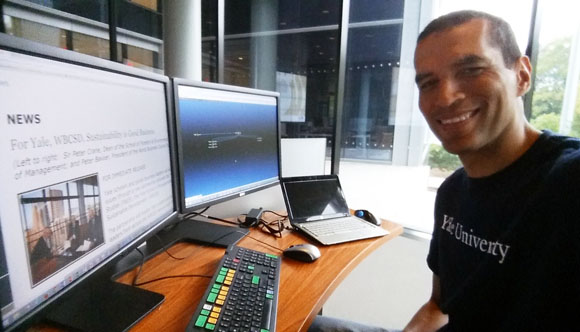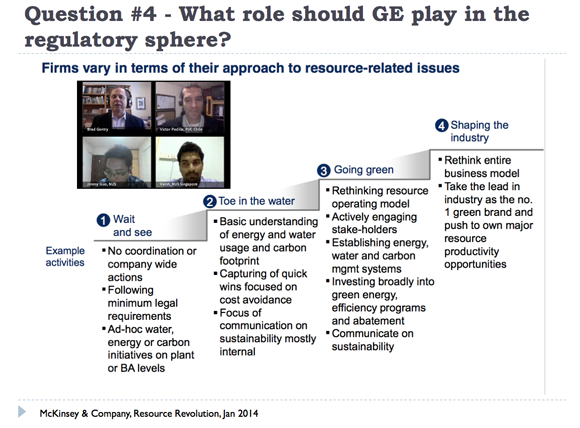Yale School of Management United States
by Victor Padilla-Taylor, Yale Master of Advanced Management candidate
The name of the course was “Natural Capital: Risks and opportunities in global resource systems,” and it truly represented to me the unexpected door to an incredible array of new opportunities for my professional and personal development.
Just a few months back, during December of 2013, I was an MBA student from Pontificia Universidad Catolica de Chile that had just received an invitation to join a group of international students in a pilot effort, an online course, that promised to raise our awareness on matters of sustainability and the environment. But, the call from Brad Gentry, Professor and Co-Director of the Yale Center for Business and the Environment, led us beyond this initial expectation into a rich and collaborative environment where we were challenged to explore new approaches to global issues and to connect with peers from other top business schools and executives from companies around the world that were in search for real solutions to these huge problems.

Therefore, through this course, I was also introduced to the Global Network for Advanced Management (GNAM), which is a nascent community that links 27 of the world’s best business schools and shares the goal of educating the future leaders for a truly globalized planet, and the World Business Council for Sustainable Development (WBCSD), a CEO-led organization that lines up more than 200 forward-thinking companies, all of them committed to create a sustainable future for business, society and the environment.
The format of the course was impressive and very different in many ways from the massive, online academic offerings that have been around for many years for popular consumption:
1. This was a SNOC (Small Network Online Course), a carefully tailored program that allowed multiple interactions between the 41 student-participants and the more than 20 different speakers, professors and teaching assistants that were fully engaged with our training. In addition to the two weekly video conferences, and many other private video meetings arranged in smaller teams, we had chats, discussion boards, multiple sharing tools (academic and social) and even online office hours, with the objective of making this investment of time well worth it for all.
2. As working in global teams was one of the main goals of the course, we were assigned to different student groups in each half of the semester, with the purpose of reviewing two “raw cases,” or business dilemmas, that important companies around the world were facing in their management of natural resources: Coca Cola with water, General Electric with energy, Alcoa with materials, Dow Chemical with natural areas, GAR with food and Swiss Re and finally Oxfam America with climate change. But performing an academic exercise was thought to be not enough engagement for the group: We were also given the task to combine our newly acquired knowledge and the tools that we had learned during our time in business school to design and present real solutions to executives of these firms, in a truly unforgettable opportunity for all of us.
3. We concluded the course writing, from the point of view of our different geographical locations, a personal assessment on the applicability of the Action 2020 platform that was developed by the WBCSD, the Stockholm Resilience Center and the World Resources Institute, as a vehicle for business action in nine priority areas of sustainability around the planet.

Therefore, I can confidently say that this course was not an ordinary course, for ordinary business professionals, or for ordinary times. This was much more personal, close, intensive, collaborative, and transformational, a huge impact to our lives.
Accordingly, after my completion of the Natural Capital course in May of this year, I decided to continue this journey of training, exploration and work in the midst of this thriving and highly-connected community by joining the Master of Advanced Management program at Yale SOM and the Center for Business and the Environment (CBEY), where as a Research Student I work in developing specialized training for business leaders and in promoting entrepreneurial activities among students and faculty members of the Global Network for Advanced Management.
Let me finish this review by asking you: What are you waiting to start your own journey?
Be the most connected, join GNAM and enroll in the course Natural Capital: Risks and opportunities in global resource systems. It will be truly transformational!
